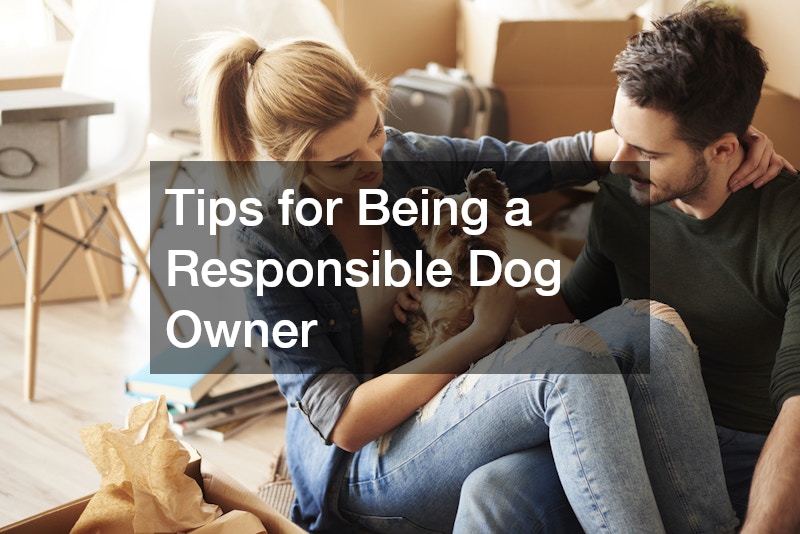
Being a responsible dog owner involves more than just providing food and shelter; it’s about creating an environment where your dog can thrive emotionally, physically, and socially. Dogs are loyal companions who depend on their owners for love, care, and proper guidance throughout their lives. Responsible ownership includes meeting your dog’s basic needs, ensuring their health and safety, and providing them with opportunities for enrichment and growth. Every dog has unique requirements, and it’s up to you to understand those needs and act accordingly.
As a dog owner, your aim should be to build a strong, healthy, and lasting relationship with your pet while ensuring that they are well-behaved, healthy, and happy. This blog will guide you through essential tips on how to fulfill your role as a dog owner, covering everything from choosing the right dog to maintaining their health, training, and ensuring a safe home environment.
Choosing the Right Dog for Your Lifestyle
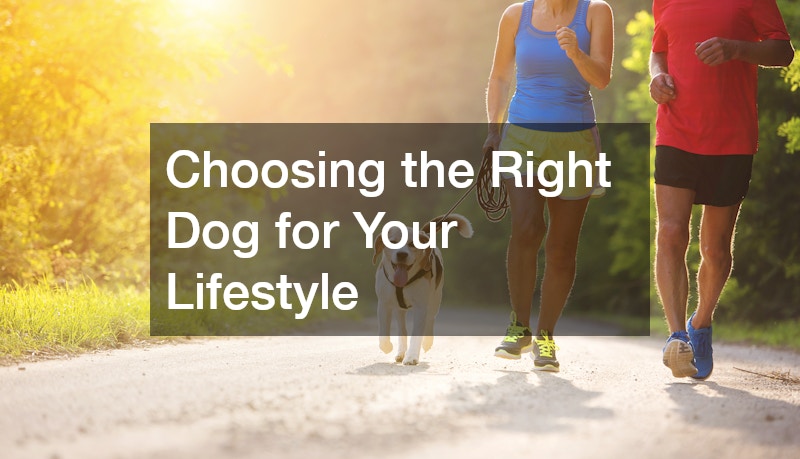
Selecting the right dog is the first step in becoming a responsible dog owner. Every dog has its own unique temperament, energy level, and needs, which is why it’s essential to choose a breed or mix that matches your lifestyle. You must consider factors like the dog’s size, exercise requirements, and grooming needs, as well as their temperament. While some dogs require extensive exercise and mental stimulation, others are content with a few short walks a day. Similarly, some dogs need a lot of attention and companionship, while others are more independent. Matching your dog’s needs with your own lifestyle helps ensure that both you and your dog will be happy and comfortable in your home.
When choosing a dog, it’s also important to think about your living situation. For example, if you live in a small apartment, a smaller breed with lower energy levels might be more suitable than a large, high-energy dog that needs space to roam. You should also consider the time commitment involved in caring for the dog. For those with busy schedules, a dog that requires less exercise or independent time may be a better fit. If you’re unsure about the right dog for you, consider working with local dog trainers or visiting shelters where you can speak with knowledgeable staff to help guide your decision. Understanding your lifestyle and the specific needs of different breeds will ensure a successful, long-lasting relationship with your new dog.
Providing Proper Nutrition and Hydration
Proper nutrition and hydration are cornerstones of being a responsible dog owner. Just like humans, dogs need a balanced diet to stay healthy, energetic, and strong. The right dog food provides essential nutrients like proteins, fats, vitamins, and minerals that support growth, tissue repair, and overall vitality. You need to be diligent about feeding your dog the appropriate food that matches their life stage, breed, and health status. For example, puppies need food that supports their growing bones and muscles, while senior dogs may require food that promotes joint health and is easier to digest. It’s also important to recognize that not all commercial dog foods are created equal—some may contain artificial ingredients or fillers that aren’t ideal for your dog’s health.
Hydration is equally crucial, and as a responsible dog owner, you must ensure that your dog always has access to fresh, clean water. Dehydration can lead to serious health problems like kidney disease, urinary tract infections, and digestive issues. Dogs with high activity levels, such as working breeds or active pets, will need more water to stay hydrated than those who are less active. Additionally, many dog owners are now turning to more natural and holistic approaches to nutrition, such as feeding raw dog food, which mimics a dog’s ancestral diet. Raw food can be rich in nutrients and free from preservatives and additives. If you are considering this route, it’s essential to consult with your vet to ensure that the raw food diet is balanced and safe for your dog.
Establishing a Consistent Exercise Routine
Exercise is vital to a dog’s health and happiness, and as a responsible dog owner, it’s your job to ensure your dog gets the physical activity they need. Regular exercise keeps dogs physically fit, helps to manage their weight, and provides mental stimulation. Some dogs may even require specialized exercise, such as pet physical therapy for rehabilitation or after surgery. Many behavior problems, like chewing and excessive barking, can arise from a lack of exercise and stimulation. Each dog breed has different exercise needs, with active breeds like Border Collies and Labrador Retrievers requiring more strenuous activity than smaller or more sedentary breeds. Developing a consistent exercise routine helps your dog burn off excess energy and provides an opportunity to bond with your pet.
Incorporating exercise into your dog’s daily routine can involve a variety of activities, such as walks, runs, playing fetch, or even dog sports. You should aim to provide at least 30 minutes to an hour of exercise each day, depending on your dog’s age, breed, and health. Whether it’s a brisk walk around the neighborhood or a trip to the dog park, regular physical activity helps maintain your dog’s health and strengthens your bond.
Ensuring Regular Veterinary Care
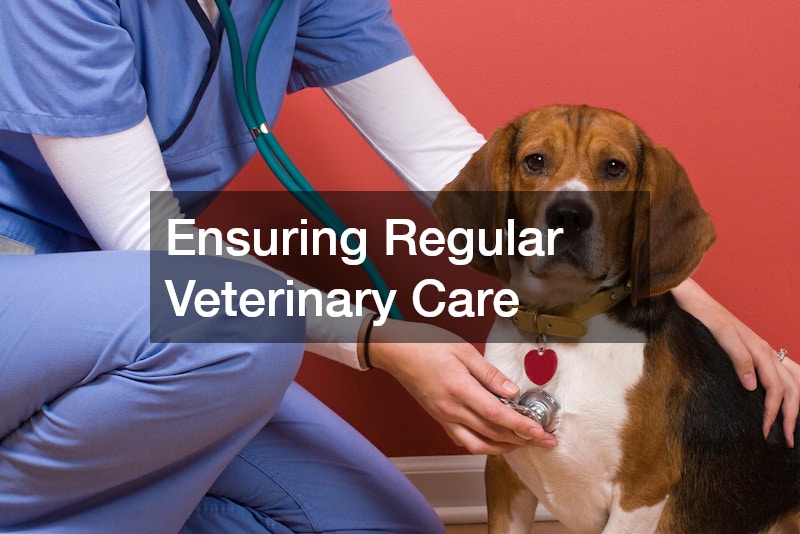
Regular veterinary care is one of the most important aspects of being a responsible dog owner. Routine check-ups help monitor your dog’s overall health and catch any potential issues before they become serious. Veterinarians are able to offer preventive care, such as vaccinations, flea and tick treatments, and parasite control, to keep your dog healthy. It’s essential to schedule annual vet visits to ensure that your dog is in optimal health and to address any questions you might have about their care. Preventive care can help avoid expensive medical bills down the line and improve your dog’s quality of life.
Aside from routine check-ups, your dog may need additional care as they age, including dental checkups and specialty care. As your dog matures, they may develop specific health conditions that require attention from a veterinarian. Regular visits also provide an opportunity to discuss any changes in behavior, diet, or physical activity levels. It’s crucial to stay informed and proactive about your dog’s health needs, and working with trusted veterinarians near me ensures that you have access to the best care for your pet when needed.
Training Your Dog for Good Behavior
Training is a fundamental part of responsible dog ownership. A well-trained dog is easier to manage, more socially well-adjusted, and safer in a variety of situations. Training helps reinforce desired behaviors while discouraging undesirable ones, such as excessive barking, chewing, or jumping. You should start training your dog at an early age to establish boundaries and teach basic commands like sit, stay, and come. Consistency and patience are key when it comes to dog training. Regularly practicing commands and rewarding positive behavior will help reinforce the bond between you and your dog while making life with your pet much more enjoyable.
While basic training can be done at home, some dogs require more specialized instruction. This is where dog trainers can be a valuable resource. Professional trainers can provide personalized training plans tailored to your dog’s specific needs, whether it’s overcoming behavioral issues or learning advanced commands. If you have a high-energy breed or a dog that struggles with certain behaviors, a trainer can guide you through more challenging training scenarios. Investing in proper training not only makes your dog more obedient but also fosters a stronger relationship between you and your pet, promoting a well-behaved dog that can be trusted in various situations.
Creating a Safe and Comfortable Living Space
As a dog owner, creating a safe and comfortable living space for your dog is essential to their well-being. Dogs need a designated area in the home where they can rest, relax, and feel secure. Whether it’s a cozy dog bed, crate, or a designated corner, your dog’s space should be free from potential hazards such as electrical cords, toxic plants, or sharp objects. This ensures that your dog is safe when you’re not around to supervise. A comfortable space gives your dog a sense of ownership and a place where they can retreat for privacy, which is particularly important in a busy household.
Additionally, safety is paramount when it comes to the home’s environment. Installing a fence around your yard can prevent your dog from running off and ensures that any outdoor spaces, like gardens or yards, are secure. Fences also provide an area where your dog can play freely and safely. With proper attention to detail and a secure environment, you can ensure that your dog’s living space contributes to their comfort, security, and overall happiness.
Socializing Your Dog with Other Pets and People
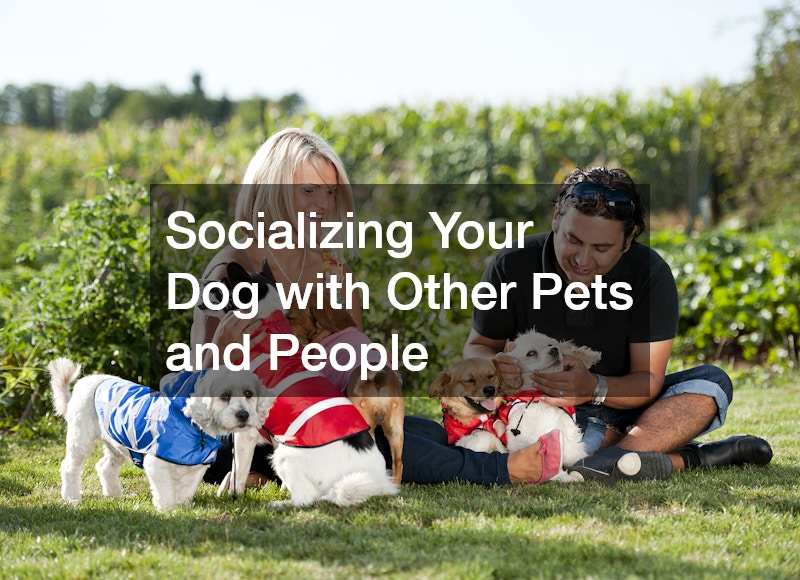
Socialization is an essential part of being a dog owner. A dog that is well-socialized is more likely to be calm, friendly, and confident around other pets and people. Socializing your dog from an early age helps them develop the necessary skills to interact positively with other dogs and humans, whether at the dog park, doggy daycares, or in your own home. It’s important to expose your dog to a variety of environments, sounds, people, and other dogs to ensure they are well-adjusted and less likely to develop fears or behavioral issues.
As a responsible dog owner, you should also provide opportunities for your dog to interact with other animals and people on a regular basis. Boarding kennels are excellent places for dogs to learn how to socialize with other dogs while under supervision. These services provide a safe space where your dog can interact with other pets, helping them to develop positive social skills. Whether it’s through doggy playdates or structured training classes, socialization plays a significant role in your dog’s overall development and well-being.
Practicing Responsible Dog Waste Management
One of the most important but often overlooked responsibilities of being a responsible dog owner is managing your dog’s waste. Cleaning up after your dog is essential for maintaining cleanliness in your home and your neighborhood, and it also helps to ensure the health and safety of other animals and people. Dog waste can carry harmful bacteria and parasites, so it’s important to dispose of it properly. Always carry waste bags when walking your dog and make sure to dispose of waste in a designated trash can or waste station.
For dog owners with larger yards or those living in more rural areas, you may also need to establish a waste management routine at home. Many dog owners choose to use designated areas in their yards for dog waste, which can then be cleaned up regularly. Additionally, some areas offer pet hospitals or specialized services that will help manage dog waste disposal. Regular cleaning and responsible waste disposal practices will not only keep your home and yard cleaner but also contribute to a healthier environment for everyone.
Grooming Your Dog for Health and Comfort
Grooming your dog is an important aspect of responsible dog ownership that goes beyond aesthetic reasons. Regular grooming not only keeps your dog looking and smelling good but also plays a crucial role in their health and comfort. Brushing your dog’s coat helps remove tangles, dirt, and debris while promoting healthy skin. Regular grooming also gives you the chance to check for potential health problems such as skin infections, fleas, or ticks.
For dogs with long or dense coats, grooming can be especially important to prevent matting and tangling, which can cause discomfort or even skin issues. Scheduling regular visits to dog grooming services ensures that your dog’s coat stays healthy and that they remain comfortable. Additionally, grooming provides an opportunity to inspect your dog’s paws, teeth, ears, and eyes for any signs of irritation or infection. Keeping your dog clean and well-groomed is essential for their overall health and happiness.
Understanding and Managing Your Dog’s Health Needs
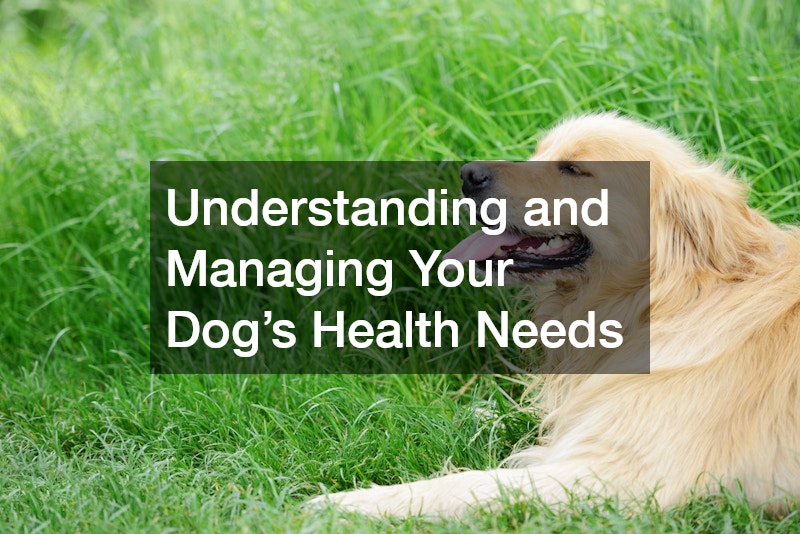
A responsible dog owner is always mindful of their dog’s health needs, which may change as they age or encounter new challenges. Regular check-ups with your veterinarian are essential for monitoring your dog’s health and ensuring they receive timely vaccinations and parasite prevention treatments. Dogs, like people, can suffer from various conditions as they grow older, such as arthritis, dental problems, or obesity. Scheduling regular check-ups and pet dental cleanings will manage health issues through preventive care and will help your dog lead a long, healthy life.
In addition to routine veterinary care, understanding your dog’s specific health requirements is crucial. This might involve providing joint supplements for older dogs or managing allergies and skin conditions. Being a dog owner means staying informed about your dog’s health and being proactive about addressing any concerns that arise. By staying in tune with your dog’s health, you’ll ensure they remain happy and active well into their senior years.
Being a responsible dog owner is a lifelong commitment that requires time, effort, and attention to detail. From choosing the right dog for your lifestyle to providing proper nutrition, exercise, and healthcare, every aspect of ownership contributes to your dog’s overall well-being. By establishing routines for training, grooming, and socialization, you create a balanced and positive environment that supports your dog’s health and happiness. It’s important to stay informed and proactive about the needs of your dog, always striving to improve their quality of life. As a dog owner, your role goes beyond just meeting your dog’s basic needs—it’s about building a lasting relationship based on trust, love, and mutual respect. Whether you’re dealing with their health care, behavior, or comfort, the goal is to make sure your dog enjoys a fulfilling life while strengthening the bond between you and your pet.
